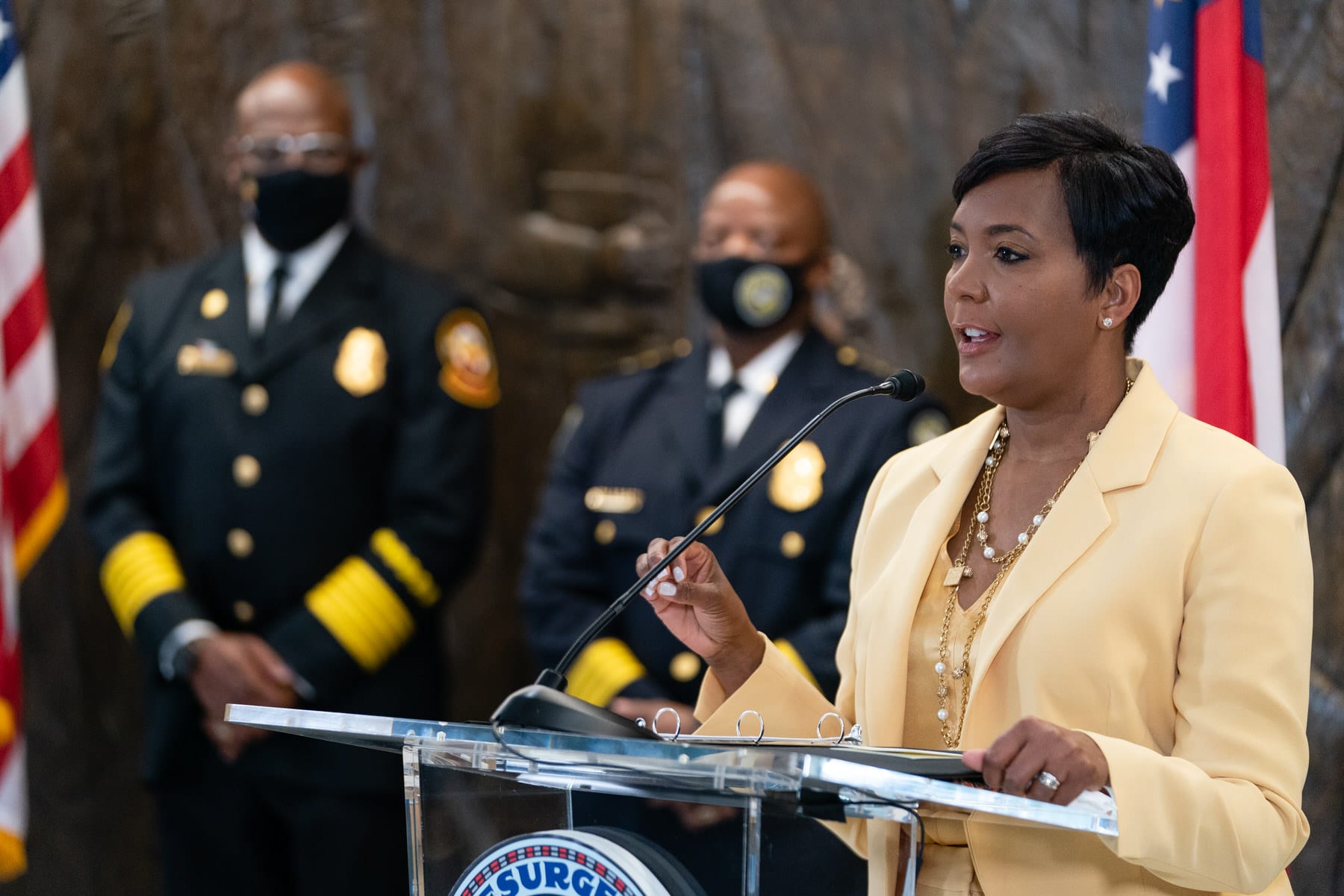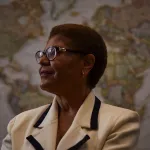Atlanta Mayor Keisha Lance Bottoms, who was a high-profile and early surrogate for President Joe Biden during the 2020 election while facing challenges at home around issues of policing and crime, has announced that she will not seek reelection in November.
A number of candidates, including women, were already running in an attempt to replace Bottoms, and more may now join the race. Bottoms said in a news conference Friday that her decision was not because she thought she would lose reelection.
“I don’t know what’s next for me personally or for my family. But what I do know is that this is a decision made from a position of strength and not weakness,” she said at the news conference, at which she got emotional. “… I could be mayor again. There’s a reason there are elections every four years. In the same way the people have the opportunity to make a decision every four years, candidates also have the opportunity to make a decision.”
Bottoms’ announcement is a stunning reversal from her assumed plans. In an February interview with The 19th, she confirmed her intent to seek a second term, saying: “I don’t take being mayor for granted. It is a right, it is something I had to earn when I ran in 2017 and … I have to once again prove myself to voters.”
Bottoms’ exit throws the race wide open and again raises the question of whether her successor will be African American. She is the city’s 60th mayor and Atlanta’s sixth consecutive Black mayor. And Bottoms is only the second woman to serve as mayor; the first, Shirley Franklin, was first elected in 2001.
Bottoms is one of seven Black women currently leading America’s biggest 100 cities, including Vi Lyles of Charlotte, LaToya Cantrell of New Orleans, Muriel Bowser of Washington, London Breed of San Francisco, Kim Janey of Boston and Tishaura Jones of St. Louis.
In her announcement, Bottoms, 51, maintained that her decision was not a matter of whether she could raise money or win. No Black mayor of Atlanta has ever lost reelection, and the city boasts an unmatched streak of Black leadership among major cities, a point of pride for many. But in recent cycles, that streak has been threatened as Black candidates were forced into runoffs and eked out slimmer and slimmer victories.
More candidates may enter the race with Bottoms’ exit. All candidates compete in a November 2 election, with the top two candidates going to a runoff. Former mayor Kasim Reed, City Council President Felicia Moore and attorney Sharon Gay are already in. Mary Norwood, a veteran activist and former city councilwoman, may run for the third time in 12 years. Norwood, who is White and has positioned herself as a conservative alternative, has been the top challenger and is expected to be a formidable opponent in 2021.
Bottoms was among the first Black elected officials outside of Washington to endorse Biden during the 2020 Democratic primary. She said she saw Biden as the pragmatic choice best positioned to defeat then-President Donald Trump, picking him over other candidates, including Kamala Harris, a Black woman, and New Jersey Sen. Cory Booker, a Black man.
In the months that followed, Bottoms was a loyal surrogate who campaigned across the country for Biden, and was discussed as a potential vice presidential running mate last year before Harris was chosen to join the Democratic presidential ticket. Bottoms spoke at the Democratic National Convention and was discussed for a role in the Biden Cabinet, though she ultimately did not join the administration.
Last year, as the pandemic raged in Georgia, Bottoms clashed with Gov. Brian Kemp over public health restrictions. The battle over voter access also targeted Atlanta and put the two leaders at odds.
“As Derek and I have given thoughtful prayer and consideration to the season now before us, it is with deep emotions that I hold my head high, and choose not to seek another term as Mayor,” Bottoms wrote in a letter posted on social media on Thursday evening hours after sharing her decision in a call with supporters. “It is my sincere hope that over the next several months, a candidate for Mayor will emerge whom the people of Atlanta may entrust to lead our beloved city to its next and best chapter.”
Rising violent crime in Atlanta during the pandemic became an increasing local concern, and the fatal shooting of Rayshard Brooks by an Atlanta police officer in June became a flashpoint in the national reckoning on race around the ongoing killings of unarmed Black people by law enforcement officers and vigilantes.
Correction: An earlier version of this article misstated the year Shirley Franklin was elected.






